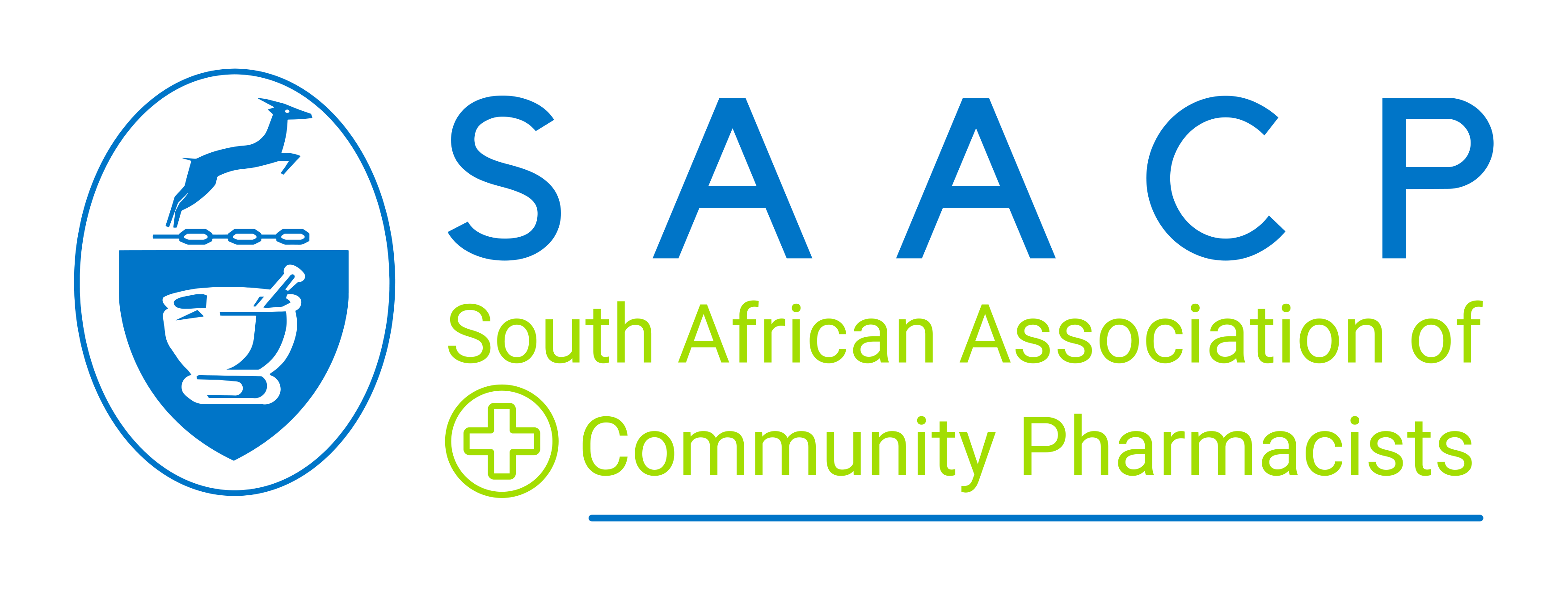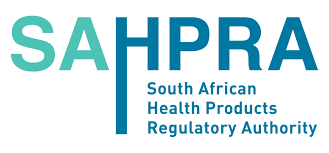Join the SAPHEX Symposium – Where industry leaders connect, innovate, and grow in South Africa's pharmaceutical market.
At SAPHEX, the cream of pharmaceutical manufacturers meet the suppliers of technology and service solutions for their manufacturing & pharmaceutical endeavours in the exhibition hall, they learn best practice at the conference, and they get the opportunity to network with their peers to set up important business relationships.







| Time | Topic |
|---|---|
| Wednesday, 5 March 2025 | |
| 10:00 – 13:00 | Pharmaceutical Employment Indaba Like any other healthcare professional, pharmacists make a unique and irreplaceable contribution to the healthcare system by providing pharmaceutical care to patients. They ensure that the right medicine in the right dosage is given to the right patient at the right time. Globally, the International Pharmaceutical Federation (FIP) report on Pharmacy Workforce Intelligence: Global Trends Report published in 2018 indicates a global mean of 73.6 pharmacists per 100,000 people to effectively provide pharmaceutical care to citizens. In South Africa, the population is estimated at 63 million people, and more than 17,000 pharmacists are registered with the South African Pharmacy Council (SAPC), resulting in a ratio of 27 pharmacists per 100 000 South African population. However, not all of the pharmacists appearing in the register are actively engaged in practising the profession, as some may choose to uphold their registration despite being retired, not practising or emigrating. Despite the South African ratio between population and pharmacist being far lower than the global mean, we continue to see pharmacy professionals without employment in the health sector. The trend is observed among graduates not being able to find internships, a lack of community service posts, and an inability to absorb post-community service pharmacists into the workforce. The first to be blamed is the universities, which “oversupply” the profession with graduates. Yet, the universities are mandated to gear their infrastructures to deliver a set number of graduates per year, as per the country’s need expressed in the 2030 National Human Resources for Health Policy. However, are we at a tipping point where the ability of the healthcare sector (both public and private) to absorb new graduates is exceeded by the current output despite not reaching the global ratio? This Pharmaceutical Employment Indaba aims to address critical pharmaceutical human resources (HR) issues through advocacy, collaboration, and contributing to policy development, ensuring that the profession can meet current and future health system needs. After this session, attendees will be able to: – Understand the government's view on Human Resources for Health from National policy, community service and provincial perspectives; – Understand the private sector’s view on Human Resources and employment; – Conceptualise pharmacy human resources from a statutory and higher education training perspective; and – Realise the reality of the unemployed pharmaceutical workforce; and – Brainstorm together around finding solutions to ensure pharmaceutical employment. Session chair: Ms Refiloe Mogale (PSSA Executive Director) Presentations: Employing pharmacists in the provincial public sector Speaker TBC Human Resources for Health Dr Percy Mahlati (Deputy Director-General: Hospital Services, Tertiary Health Services & Health Workforce Development) Pharmacy Human Resources in South Africa Mr Vincent Tlala (Registrar: South African Pharmacy Council) Role of Community Service in 2025 Dr Percy Mahlati (Deputy Director-General: Hospital Services, Tertiary Health Services & Health Workforce Development) University’s perspective on pharmacy graduates Prof Sandile Khamanga (Chair: SAPC Heads of School committee) Employing pharmacists in the private sector Ms Vishala Gokool-Sewram (General Manager: Pharmacy, Netcare) Mr Jaco du Plessis (General Manager : The Local Choice) Dr Stavros Nicolaou (Group Senior Executive: Aspen Pharmacare Holdings Limited) Unemployment of Young Pharmacists Ms Ntombizodwa Luwaca (Chair: PSSA Young Pharmacists’ Group) PSSA’s commitment to Pharmaceutical Employment Mr Tshifhiwa Rabali (President: Pharmaceutical Society of South Africa) |
| 14:00 – 16:00 | Pharmacy Practice Collaborations in the KZN Coastal Region: Sectoral Best Practices and Case Studies Session hosted by the PSSA KwaZulu-Natal Coastal Branch Uniting healthcare professionals across disciplines is essential to inculcate a culture of teamwork, improve patient outcomes, and drive systemic change. Best practices are evidence-based methods or techniques that provide results superior to those achieved through other means. They are essential in healthcare to ensure the delivery of high-quality, efficient, and safe services. Adopting and implementing best practices contributes to excellence and continuous improvement, ultimately benefiting both patients and providers. Case studies are invaluable in fostering a learning environment. By providing concrete, relatable examples, they enrich education, inform practice, and drive innovation. Through case studies, healthcare professionals can learn from past experiences and create a better future for patients and communities. After this session, attendees will be able to: Learn about specific sectoral best practices via relevant case studies; Integrate and implement innovative interdisciplinary strategies; and Understand the pivotal role of the pharmacist in collaborative practices. Session chair: Dr KK Naidoo (Director: PSSA KZN Coastal branch) Presentations: Latest research on collaborative best practices Prof Varsha Bangalee The successful implementation of a multi-disciplinary pharmacovigilance project in a drug-resistant tuberculosis programme Dr Nirupa Misra A ward pharmacy program at a regional hospital in KwaZulu-Natal Dr Vivian Campbell Chengalroyan A case study on PCDT as a tool for collaboration Mrs Dipti Desai A case study on the role of a cohesive healthcare team in supply chain best practices Mrs Thandeka Njapha |
| Time | Topic |
|---|---|
| Thursday, 6 March 2025 | |
| 09:00 – 09:45 | Is technology currently running the show in Pharmacy education? Session hosted by the Academy of Pharmaceutical Sciences of South Africa (APSSA) Technology has become integral to education, supporting South Africa’s drive toward the digital transformation of education and healthcare. Pharmacy education is no exception. Government initiatives such as the Artificial Intelligence (AI) Institute and hubs launched in 2022 underscore the growing role of AI and digital tools in healthcare. The draft National Artificial Intelligence Policy Framework (April 2024) further reinforces this shift, highlighting AI’s impact on both education and healthcare. In pharmacy, integrating AI-driven tools, data analytics, and digital health technologies into curricula is essential to prepare graduates for an evolving healthcare landscape. Equipping future pharmacists with these skills ensures they can leverage technology to enhance patient care and advance the profession. After this session, attendees will be able to: (a) Identify various technologies used in pharmacy education and their alignment with technologies used in practice; (b) Analyse university policies regarding the use of AI in education; (c) Explain how technology is changing learning processes and critical thinking in pharmacy education; and (d) Discuss the implications of increasing reliance on technology for pharmacy education and professional competency. Session chair: Ms Lorraine Thom (Chair: Academy of Pharmaceutical Sciences of South Africa) Presentations: 1. Introduction Ms Lorraine Thom (Chair: APSSA) 2. Is technology currently running the show in Pharmacy education? Dr Teri-Lynne Fogarty (Nelson Mandela University) |
| 10:00 – 11:00 | Industry matters Session hosted by the South African Association of Pharmacists in Industry (SAAPI) Presentations: 1. Introduction to SAAPI – Ms Yolanda Peens (Executive Director: SAAPI) 2. Transitioning Patient Information Leaflets from Print to Pixels – Ms Nicola Brink (Executive Director : Self-care Association of South Africa) 3. Ethical Promotion of Health Products – Lucelle Iyer, Operations Executive and Responsible Pharmacist: Adcock Ingram Critical Care. |
| 11:30 – 13:00 | Patient-centered care and shared decision making: A multidisciplinary approach Session hosted by the PSSA Cape Western Province Branch Patient-centered care is a practice concept in which a patient is actively involved in their own medical treatment. Healthcare professionals work with patients to help them understand their condition and treatment. Sometimes, relatives or caregivers are also included in this team. This approach empowers patients to take an active role in their care plan and assume responsibility for their health. Multidisciplinary teamwork is key to successful outcomes. The most crucial element of this team is the patient, who falls at the centre. A patient working with a multidisciplinary team allows one to treat the entire patient and provide comprehensive care, with each healthcare provider focused on a different aspect of the patient’s health. Providers are more likely to identify matters requiring attention and subsequently manage those needs effectively. When a decision is taken with a patient, there is a feeling of inclusivity and respect. There is better cooperation to see a plan through rather than when decisions are purely “made for” the patient. After this session, attendees will be able to: Learn about the key concepts of patient-centered care; Understand the application and benefits of multidisciplinary teamwork; and Discover applications of multidisciplinary teamwork in a hospital and community setting Session chair: Mr Kobus le Roux Presentations: Welcome and introduction: Partners In Healthcare: Patients And Healthcare Professionals Mr Kobus Le Roux Patient-centeredness and shared decision-making: A multidisciplinary approach Ms Kaajal Chetty Multidisciplinary teamwork in a hospital setting Mr Brent Sin Hidge Multidisciplinary practice in a community setting Mr Jameel Kariem |
| 13:30 – 14:45 | PCDT – Empowering Primary Care through expert pharmaceutical management Session hosted by the South African Association of Community Pharmacists (SAACP) After this session, attendees will be able to: Understand the unique responsibilities, scope of practice, and core activities of a primary care drug therapy pharmacist in South Africa; and Appreciate the critical role PCDT pharmacists play in improving healthcare delivery, promoting patient-centred care, and addressing systemic challenges in the healthcare system, and recognising the potential role of PCDT Pharmacists within a National Health Insurance (NHI). Session chair: Mr Johannes Ravele (President: South African Association of Community Pharmacists) and Mr Johan Moolman (Chair: SAACP PCDT special interest group) Presentations: PCDT, who are we? Mr Johan Moolman (Chair: SAACP PCDT Special Interest Group) PCDT Pharmacists in 2025 – A new dimension in the Profession Speaker TBC PCDT – An Integral member of the Rural Healthcare team Speaker TBC |
| 15:00-16:00 | National Action Plan on fighting substandard and falsified medical products Session hosted by the South African Health Products Regulatory Authority (SAHPRA) Combatting the threat of substandard and falsified (SF) medical products is one of the urgent global challenges of this decade. Given the transnational nature of globalized medical product supply chains and criminal networks, collaborating across borders and sectors is essential to national, regional and global responses. Medicines, vaccines and in vitro diagnostics that lack efficacy / or performance, are contaminated, or have bypassed quality control and regulatory processes cause harm to patients and fail to treat the diseases or conditions or which they are intended. After this session, attendees will be able to: (a) Share information on the importance of developing and sustaining a national action plan to implement the Prevent, Detect and Respond strategy fighting SF medical products; (b) Understand how SAHPRA can leverage the competencies of relevant stakeholders, including policymakers, procurers, distributors, practitioners, patients and consumers; and (c) Promoting good governance and collaboration among multiple stakeholders with interest in the topic, who are responsible for regulatory oversight, and who participate in combating SF medical products; and (d) Strengthens South Africa in achieving a stable, integrated and well-functioning regulatory system, particularly in specific aspects of market control, surveillance and regulatory inspections. Session chair: Mr Deon Poovan (SAHPRA) Presentations: 1. SF medical products Deon Poovan (SAHPRA) 2. SAHPRA Daphney Fafudi (SAHPRA) 3. World Health Organization Local Office Averouz Maritz (WHO) 4. Commission of Intellectual Property and Companies (CIPC) Amanda Lotheringen, (Senior Manager, Copyright and IP Enforcement, CIPC, the dtic) |
